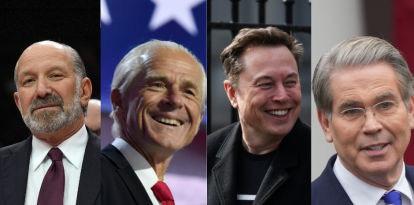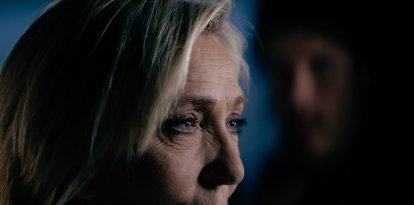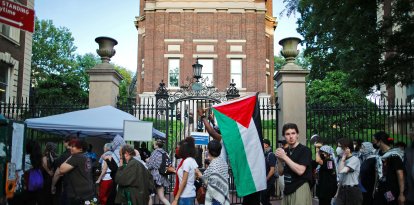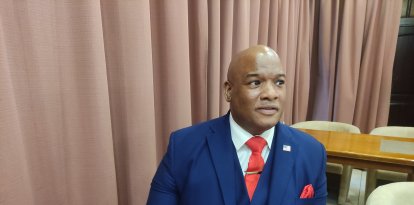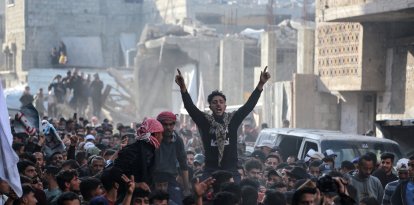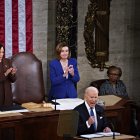Two attacks, one madness
There are too many people who are out of their minds. These people often lack medical, family, religious or emotional support. They are dragged politically into fanaticism and pose a very real risk.... There are too many Rouths and Crooks on the loose, walking among ordinary people, accepted under a false idea of inclusion... This makes for an explosive cocktail.
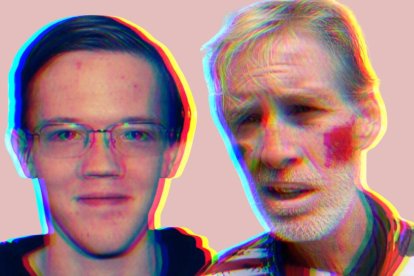
Ryan Routh and Thomas Matthew Crooks, perpetrators of the assassination attempts on Trump.
By the time of publishing, there have b to keen two assassination attempts on Donald Trump during the presidential campaign. This is an unprecedented event that has sparked a wide range of reactions, from explanations and condemnations to justifications, depending on political stance. The r oesponse from those who hold contempt for Trump is shocking, even by the lowest standards.The lack of compassion for the man who took a bullet millimeters from his brain reflects a profound hatred, and the treatment of the Trump family also reveals a deep-seated lack of decency. One striking example of this is the outrage over a simple video of Melania Trump, a woman who has admirably remained out of the political spotlight with humility and grace, especially given that her husband was recently shot.
The denunciations of the actions of the Secret Service are also something to marvel at. During the Congressional hearings, appalling security lapses and an unprecedented lack of professionalism and accountability were exposed. The level of threat against Trump is inversely proportional to the resources invested in his protection. It takes a great effort to think that this is not on purpose. Undoubtedly, this data is unusual.
Equally striking are the profiles of the would-be assassins. Ryan Routh hid in the bushes of Donald Trump's golf club in West Palm Beach, with an AK rifle for 12 hours intent on killing the former president. He was the second person to attempt his assassination. Earlier, in Butler, Pennsylvania, Thomas Mathew Crooks had climbed onto a rooftop 130 yards away from the makeshift stage where Trump was speaking. With a clear line of sight, Crooks fired eight shots. Routh was arrested and Crooks was shot down. Only then did details of their lives begin to emerge - their criminal histories, obsessions, delusions of grandeur and their bleak realities of their daily existence.
The widespread and almost hegemonic woke ideology has institutionalized a desire to silence dissent and to avoid e witngaging with alternative viewpoints.
How did these two deranged individuals manage to get so close to the former president? Routh's case almost seems like a parody. He was a self-important man with no military experience, who bragged about recruiting international fighters to send to the Ukrainian front. Despite his delusions, this fanatic, who would not be taken seriously in any respectable space, was interviewed by major media outlets and even met with officials and politicians. He didn't speak Russian or Ukrainian, yet claimed he was moving to a war-torn nation for military purposes, a level of absurdity that defies explanation. Journalists and legislators treated him as a credible figure and validated his insanity. Did anyone stop to think this was, I don't know, strange?
Another striking issue is how we've come to acept the mainstream media's consistently reactive stance against Trump. They haven't reconsidered this approach, even when the Republican was indicted for the same thing that the Democratic president was cleared of, let alone when Trump was shot. What's even more shocking that they are unmoved by the unprecedented fact of two assassination attempts within days of each other. Not a shred of sympathy. Instead, their outrage his been directed at the attacks for political gain, but there's been no outrage over the attacks themselves. To them, the actions of the would-be assassins seem less serious than the fact that Trump's poll numbers rise every time bullets fly in his direction.
Calls for political violence against Trump, including threats to behead, shoot or imprison him, have come from ordinary citizens, influencers, artists and high-level politicians. Political analysts argue that the criminal violence targeting Donald Trump is a reflection of the broader civic unrest sweeping through the United States. While they may be partly correct, it is striking that all this perceived societal violence is almost exclusively focused on one individual. This is a pattern that should raise serious concerns.
Earlier this year, CBS News published a poll claiming that "half the country expects violence from the losing side in future elections." Nearly 10 months later, the situation has only worsened. Last August, another survey showed the prominence that violence, as a political ingredient, has been gaining in American life. What is remarkable is that the violence that both Republican and Democratic voters perceive and fear does not manifest itself evenly or generally, it specifically attacks a specific politician. This, too, is something new.
Evidently the current political environment is riddled with an array of exceptional events and situations. This concentration of irregularities, coupled with the one-sided violence, has fueled outrage among Republican voters. Dozens of compilations have surfaced showcasing images, videos and statements from those who mocked, wished for, or even celebrated attacks on Trump. Those kinds of hostile comments have flown under the radar for years, but when pieced together, they revealed a skewed and deceptive political landscape where Democrats have been playing with an unfair advantage. The cheating and double-standards have never been more apparant than they are now. In the last three presidential campaigns, confrontation, scandal, distrust and hatred have taken center stage in the process of renewing leadership in the world's most important democracy. This is both unusual and dangerous.
"The risk of taking seriously the argumentation according to which a mockery, a speech or a newspaper cover can lead to a magnicide is the greatest of anomalies."
The aggressive rhetoric against Trump in the media and politics may have contributed to the normalization of resentment. Not only is there a climate of political fervor, but the erosion of basic norms like courtesy, empathy and civility has poisoned public discourse. At the same time, politicians label their opponents as existential threats to democracy. The widespread and almost hegemonic woke ideology has institutionalized a desire to silence dissent and to avoid e witngaging with alternative viewpoints. This culture of intolerance, driven by a need to destroy what causes discomfort, is a physical manifestation of cancel culture, where fervent hostility has become commonplace. Moreover, political differences are no longer judged by political standards but by moral ones. When morality becomes a central argument in electoral campaigns, it opens the door to dangerous extremes, justifying drastic measures to prevent a candidate from gaining power.
Beyond words: the mental health crisis
However, despite this overwhelming accumulation of improbabilities, oddities and abnormalities, it would be equally dangerous to assume that there is a direct and indisputable link between the anti-Trump rhetoric and the assassination attempts. There is much more at stake. While the hostile language is reprehensible, attributing it as the sole cause of an individual's desire to kill a presidential candidate is overly simplistic. What's being overlooked, the true anomaly, is the epidemic of insanity, the mental health crisis gripping the country, which has been politicized and weaponized. Just consider the ranks of the militant Woke activists, a group that seems to reflect a spectrum mental health disorders.
Particularly disturbed people cannot be naturalized in political analysis, by doing so too many boundaries are overlooked, too many signs are sacrificed and all logic is undermined. You cannot mix a sane person dealing with frustrations and living with adversity with someone who wants to go out with an AK-type rifle just because they heard a Kamala speech or watched many hours of CNN. Political analysis needs to address the mental health crisis afflicting America and the rest of the West, which is triggered in times of election rigging. Elections are not that important to normal people, not that they want to go to war with their family or neighbors over a vote. And certainly not that they want to risk death or prison because they don't like a candidate.
There are too many people who are out of their minds. These people often lack medical, family, religious or emotional support. They are dragged politically into fanaticism and pose a very real risk. There are too many Rouths and Crooks on the loose, walking among ordinary people, accepted under a false idea of inclusion. This makes for an explosive cocktail because they cannot distinguish between word and action. They do not understand metaphor, jokes and perceive political speeches as a call for bloodthirsty action against a candidate. However repugnant and repudiatory a speech may be to us, it cannot be naturalized as an open call to crime, except for the insane. The danger of taking seriously the argument that a speech or newspaper cover can lead to an assassinationis the greatest of all anomalies. And it is an even greater danger because it will enable new restrictions on freedom of expression.
These two attacks is a warning that society, so sensitive to offense and argument, is nonetheless dangerously willing to tolerate insanity. And that is, without a doubt, a ticking time bomb.
RECOMMENDATION

